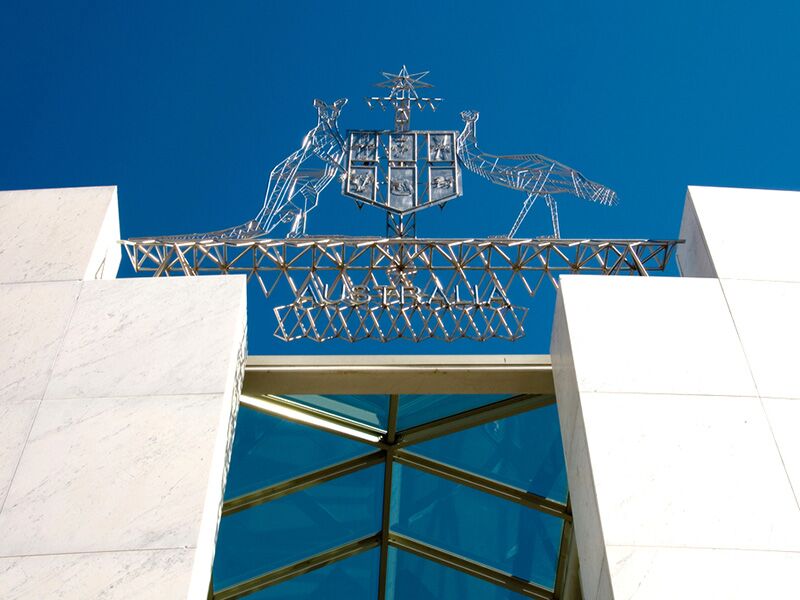The Australian Information Industry Association (AIIA) has called on government to establish a ‘Made in Australia’ Office to assess domestic capability gaps in the information technology supply chain.
But the AIIA wants the office to be rendered toothless, incapable of addressing in any meaningful way the sovereign capability shortfalls in areas of key strategic importance to running the government and delivering critical citizen services.
The Made in Australia Office proposal put forward by the AIIA resembles Joe Biden’s Made In America executive order in name only.
Joe Biden signed the Made In America executive order within days of being sworn in last January in one of his first acts as President. The Made in America executive order effectively legislated a “buy American” policy “to support American workers and manufacturers”.

It was unapologetic in its aim, to ensure that the US government massive procurement spend was director to American companies – to build capacity, capability and to drive economic recovery.
It is a requirement of the Made In America executive order that the head of a US department or agency seeking to buy a product or service from a non-US company made first seek a waiver from the head of the newly-established Made in America office.
The head of that department or agency would be forced to publicly justify the decision to buy a non-US product.
Through this arrangement, Joe Biden had in effect formalised into an executive order the protectionist rhetoric of the Trump years.
The US government had made its procurement budget an instrument of industrial policy, something that has been taboo in Australia outside of the Defence industry.
Well, if it’s good enough for our American cousins, why not us? I asked this question an InnovationAus column last March (and answered it with the headline Let’s formalise a ‘Made in Australia’ Office.)
To be clear, the AIIA is not proposing anything remotely like the capability-building procurement structures put in place by the Biden administration.
Rather, it proposes an office that specifically has no power to mandate local procurement as industrial policy. It proposes lots of identifying gaps and coordinating governments through yet another policy office inside Prime Minister & Cabinet, but no actual leverage to do anything about it.
And it discards altogether the notion of building sovereign capability, rather mischievously interchanging “domestic capability” with “sovereign capability”. Ownership does not matter to the AIIA.
It’s not sinister in so much as the AIIA is a known quantity. Its loyalties runs in tiers: First to the multinational suppliers to government that makes up 80 per cent of its funding, second to the local SME partners to those multinationals, and thirdly to Australian tech companies.
There is nothing wrong with multinational companies. They have a huge role to play in helping to build domestic capability. But let’s get real, we want our procurement dollars where it makes sense to go toward building Australia tech companies, with all the benefits that accrue from that – including building sovereign capability and sovereign capacity.
Surely this government cannot be comfortable with the current choke-hold reliance on software systems that are controlled offshore to run critical government services?
The COVID-19 pandemic taught us some short-term lessons in supply chain resilience. But what about technology supply chains? How is this government preparing for the next black swan event? Because we are still in the middle of a pandemic and the needle has not shifted.
Creating another procurement policy body inside PM&C only makes sense if the government blows-up the Digital Transformation Agency and replaces it entirely. The DTA manages whole of government ICT procurement policy, after all.
The DTA has never shown the slightest interest in building sovereign tech capability in this country, giving preferential treatment to large foreign technology providers at every turn.
The DTA chief executive Randall Brugeaud leaves the organisation this week. His departure will be cheered by the Australian companies he consistently snubbed, an utterly unlamented farewell.
The AIIA has also suggested that the Commonwealth look at introducing a Retained Economic Benefit criteria to its procurement policies, along the lines of the REB discussions that were conducted inside the NSW ICT/Digital Sovereign Procurement Taskforce (which, incidentally, were not adopted by the NSW government.)
Of course, it is no surprise that the AIIA leadership has smudged the thinking behind the concept of a Retained Economic Benefit to water down its power to build sovereign tech companies.
You can read the AIIA policy paper here.
Do you know more? Contact James Riley via Email.


What an incisive and accurate account of the situation! It’s as if there is a secret government policy paper on how not to buy Australian. Probably written for the DTA by their international consulting mates.